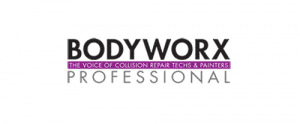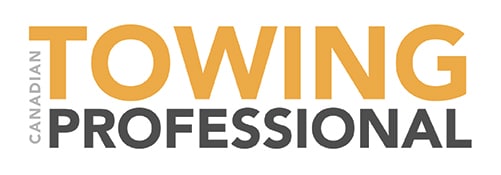Summit to Highlight the Importance of Lidar in Enabling Smart Vehicles and Infrastructure to Tackle Growing Number of Traffic Fatalities on U.S. Roadways
WASHINGTON–(BUSINESS WIRE)–$LIDR #LidarCoalitionPolicySummit—AEye, Inc. (NASDAQ: LIDR), a global leader in adaptive, high-performance lidar solutions, today announced its participation in the inaugural Lidar Coalition Policy Summit, taking place in Washington, D.C. A founding member of the Lidar Coalition, AEye is focused on leveraging lidar’s unique sensing capabilities to reduce traffic fatalities – creating a safer and smarter world.
Just last week, the National Highway Traffic Safety Administration previewed its estimates of U.S. traffic fatalities for 2021. The numbers are disturbing, with 42,915 deaths marking a 10.5% increase over 2020, and the highest number of fatalities on U.S. roadways since 2005. Pedestrian deaths are also on the rise, with 75% of those taking place in low-light conditions, an area where lidar excels.
At the summit, Lidar Coalition members will both educate and advocate – addressing how lidar complements cameras and radar to better address USDOT priorities of safety, equity and accessibility for every member of the traveling public. AEye’s SVP and GM of Mobility Products, Brent Blanchard, will moderate a panel focused on the government’s role in how the technology fits into a safe systems approach, and where emerging technologies, including lidar, fit within public policy. Speakers and panel participants include Congressman Peter DeFazio, chair of the House Committee on Transportation and Infrastructure; Egan Smith, Managing Director of the U.S. Department of Transportation’s Intelligent Transportation Systems Joint Program Office; and executives from lidar companies.
“The growing number of fatalities on our nation’s roads is a tragedy that we can and must end,” said Blanchard. “We, as technology innovators and leaders, must leverage the best technology we have to help our cars and infrastructure become smarter, and to prevent devastating crashes before they happen. At AEye, we believe without a doubt that lidar, with its ability to deliver precise measurement and high-resolution imaging across a wide variety of lighting conditions and obscurants, will be critical to advancing road safety.”
AEye’s 4Sight™ Intelligent Sensing Platform utilizes adaptive lidar to improve the probability of detection and accuracy of classification – complementing existing sensors and increasing the speed and accuracy of decision-making. As a software-definable platform, 4Sight facilitates the release of new industry-advancing applications across the scale of autonomy, future-proofing automotive development and paving the way for the software-defined car. AEye’s Tier 1 automotive partners, such as Continental, leverage 4Sight’s modular system design and software programmability to design, manufacture and market their own unique products based on AEye’s patented sensor design and software.
About AEye
AEye’s unique software-defined lidar solution enables advanced driver-assistance, vehicle autonomy, smart infrastructure, logistics and off-highway applications that save lives and propel the future of transportation and mobility. AEye’s 4Sight™ Intelligent Sensing Platform, with its adaptive sensor-based operating system, focuses on what matters most: delivering faster, more accurate, and reliable information. AEye’s 4Sight™ products, built on this platform, are ideal for dynamic applications which require precise measurement imaging to ensure safety and performance. AEye has a global presence through its offices in Germany, Japan, Korea and the United States.
Forward-Looking Statements
Certain statements included in this press release that are not historical facts are forward-looking statements within the meaning of the federal securities laws, including the safe harbor provisions under the United States Private Securities Litigation Reform Act of 1995. Forward-looking statements are sometimes accompanied by words such as “believe,” “continue,” “project,” “expect,” “anticipate,” “estimate,” “intend,” “strategy,” “future,” “opportunity,” “predict,” “plan,” “may,” “should,” “will,” “would,” “potential,” “seem,” “seek,” “outlook,” and similar expressions that predict or indicate future events or trends, or that are not statements of historical matters. Forward-looking statements are predictions, projections, and other statements about future events that are based on current expectations and assumptions and, as a result, are subject to risks and uncertainties. Forward looking statements included in this press release include statements about AEye’s products and the use cases for such products, as well as the use of lidar generally, among others. These statements are based on various assumptions, whether or not identified in this press release. These forward-looking statements are provided for illustrative purposes only and are not intended to serve as and must not be relied on by an investor as a guarantee, an assurance, a prediction, or a definitive statement of fact or probability. Actual events and circumstances are very difficult or impossible to predict and will differ from the assumptions. Many actual events and circumstances are beyond the control of AEye. Many factors could cause actual future events to differ from the forward-looking statements in this press release, including but not limited to: (i) the risks that the use of lidar will not reduce traffic fatalities or other traffic-related incidents to the extent anticipated, especially in low-light conditions, or at all; (ii) the risks that lidar will not sufficiently complement cameras and radar to better address DOT priorities, which priorities may shift over time, including, safety, equity, and accessibility, to the extend expected, or at all; (iii) the risks that neither federal, state, nor local governments will sufficiently support emerging technologies, including lidar, as a part of public policy or government-built infrastructure, such that lidar is not adopted on a widespread basis, or at all; (iv) the risks that lidar will not deliver sufficiently precise measurements nor high-resolution imaging sufficient to advance road safety; (v) the risks that AEye’s software definable platform will sufficiently facilitate the release of new applications, future proof development, or enhance the ability of automakers to create a software-defined car; (vi) the risks that automakers’ will not pursue the software-defined car in the timeframe anticipated, or at all; (vii) the risks that AEye’s adaptive lidar will not provide a design advantage in the opinion of AEye’s customer, or others, over other lidar systems; (viii) the risks that AEye is not now, nor in the future, the only company with an adaptive sensor platform that can be configured via software for different vehicle placements, use cases, and markets; (ix) the risks that AEye will be unable to deliver world leading performance to its customers as quickly as anticipated, or at all; (x) the risks that AEye will be able to successfully launch products into the market, or at all; (xi) the risks that lidar adoption occurs slower than anticipated or fails to occur at all; (xii) the risks that AEye may not be in a position to adequately or timely address either the near or long-term opportunities that may or may not exist in the evolving autonomous transportation industry; (xiii) the risks that adoption of software-defined lidar occurs slower than anticipated, or fails to occur at all; (xiv) the risks that laws and regulations are adopted impacting the use of lidar that AEye is unable to comply with, in whole or in part, changes in competitive and regulated industries in which AEye operates, variations in operating performance across competitors, and changes in laws and regulations affecting our business; (xv) the risks that AEye is unable to adequately implement our business plans, forecasts, and other expectations, and identify and realize additional opportunities; and (xvi) the risks of downturns and a changing regulatory landscape in the highly competitive and evolving industry in which AEye operates. These risks and uncertainties may be amplified by the COVID-19 pandemic, including the Delta, Omicron, Deltacron, and future variants and subvariants, which has caused significant economic uncertainty. The foregoing list of factors is not exhaustive. You should carefully consider the foregoing factors and the other risks and uncertainties described in the “Risk Factors” section of the Quarterly Report on Form 10-Q that AEye has most recently filed with the U.S. Securities and Exchange Commission, or the SEC, and other documents filed by us or that will be filed by us from time to time with the SEC. These filings identify and address other important risks and uncertainties that could cause actual events and results to differ materially from those contained in the forward-looking statements. Forward-looking statements speak only as of the date they are made.
Readers are cautioned not to put undue reliance on forward-looking statements; AEye assumes no obligation and does not intend to update or revise these forward-looking statements, whether as a result of new information, future events, or otherwise. AEye gives no assurance that AEye will achieve any of its expectations.
Contacts
Media:
Jennifer Deitsch
AEye
jennifer@aeye.ai
925-400-4366
Andie Davis
Landis Communications Inc.
AEye@landispr.com
415-717-9133
Investors:
Clyde Montevirgen
AEye
cmontevirgen@aeye.ai
925-400-4366
Will Stack
Lambert & Co.
AEye@lambert.com
212-971-9718











